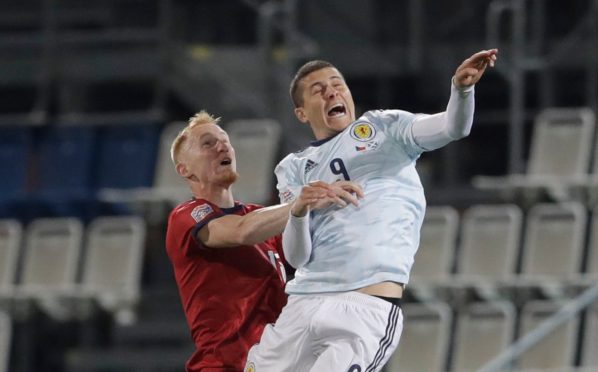
In three-and-a-half weeks’ time, a team of footballers will attempt to banish memories of a shambles of a performance to focus on the prize of a place in the European Championship Finals.
A manager left floundering to find anything positive from a haystack full of negatives will channel all his experience into sending them out in the Play-off semi-final, ready to battle to regain their country’s pride.
All thoughts of the nerve-shredding showpiece that would lie ahead, if successful, will be parked to one side under the cover of a blanket wisdom that, in sport, anything is possible.
The team in question is Northern Ireland, who have to travel to play Bosnia & Herzegovina off the back of Tuesday night’s humiliating 5-1 home defeat to Norway.
The manager is Ian Barraclough, left to elevate the absent Jonny Evans to near Franco Baresi-like status while agreeing with (helpful) suggestions Erling Braut Haaland is on a path that would eventually see him up alongside Messi and Ronaldo.
And as for the Final?
Well, the potential for an all-Ireland clash is there.
The Republic are away to Slovakia in their semi, and the prospect of them lining up against their cross-border rivals in Belfast on November 12 is an exhilarating one, to say the least.
That any reader could have mistaken the above for Scotland, says it all about the way the country played in the Czech Republic on Monday.
Steve Clarke’s men, up against a shadow side thrown together after the entire group that defeated Slovakia three days earlier had to be quarantined due to Covid-19 concerns, won the match 2-1.
In doing so, they moved top of a Nations League group that contains Israel, who, somewhat confusingly, will also be the opposition in the country’s Play-off semi on October 8.
On the back of that unconvincing win, the Dark Blues will go into the tie unbeaten in their last five matches and, thanks to Lyndon Dykes’ goal in Olomouc – his first in a Scotland shirt – with a striker to be enthusiastic about.
At that point, however, the positives dry up.
Take out Dykes’ strike, a tidy finish after some excellent movement to get in position to receive Liam Palmer’s pass, and the only other Scotland goals in 180 minutes of action came from the penalty spot.
Both were questionable awards. At the very least, it could be said that on another day, either might not have been given.
While deserving credit for the conversions, Ryan Christie’s performance encapsulated much of what was wrong with Scotland against the Israelis and Czechs.
There was plenty of effort on his part. But the Celtic midfielder – who now has three goals and five assists in his last eight Scotland appearances – gave the impression of playing as an individual, rather than as part of a team.
At times, he failed to connect with straightforward passes, at others he failed to release the ball when a pass was the best option.
Throughout there was a feeling of the team being less than the sum of its parts, with Scott McTominay uncomfortably deployed on the right of a back three.
Clarke’s decision to go 3-5-1-1 was a curious one because it had not worked well three days earlier against Israel, and in Olomouc, he shoehorned in five changes to the line-up.
He took solace from the character shown by the recovery to win after falling behind,and it was hard to argue with his claim the extraordinary situation with the Czech substitute side had effectively left the visitors on a “hiding to nothing”.
Further Covid-19 outbreaks notwithstanding, that will not be the case against Israel next month.
We can say, with some degree of confidence, that the two teams are pretty well-matched.
With home advantage in their favour, and the possibility of taking the team to within 90 minutes of a return to a major Finals for the first time in over 20 years, the manager will need no telling it is win or bust.
Succeed, and it will be a date with destiny against Serbia or – more likely – Norway, on November 12, the night the all-Ireland clash could be on the bill.
Facing Norway would potentially mean having to work out how to shackle Haaland, the fearsome 20-year-old prodigy.
That, though, is a concern for another time.
If 2020 is teaching us anything, it is surely to try to concentrate on the problems of the present because no one can be sure what the future will bring.

Enjoy the convenience of having The Sunday Post delivered as a digital ePaper straight to your smartphone, tablet or computer.
Subscribe for only £5.49 a month and enjoy all the benefits of the printed paper as a digital replica.
Subscribe